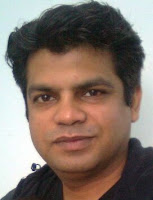Celebrating Pathways to Impact

Stephen Kemp, an independent consultant providing advice and training to universities and researchers to help them win research funding and boost the impact of their research, shares his thoughts on 'Pathways to Impact' and the importance of embracing impact focus. Stephen's background includes a PhD and postdoctoral research in chemistry and positions as an EPSRC portfolio manager, university funding development manager and university impact manager. Next year the UK Research Councils’ infamous “Pathways to Impact” will be 10 years old. But who will be celebrating? Who even realises? I started working at the Research Councils in 2009 when “Impact Plans”, as they were known in the beginning, were born. The idea was that given the amount of public money going into research, partly on the back of lobbying placing universities as engines of the economy, academics should be prepared to articulate the wider potential benefits of their work and how they might help thin

